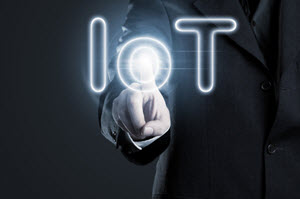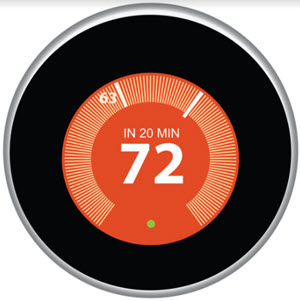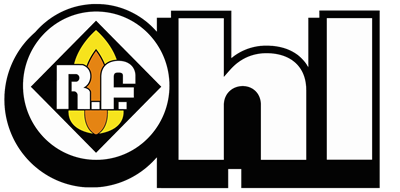HVAC And Home Automation
It is widely believed that the American Association of Home Builders coined the phrase “smart home” back in 1984. It was an effort to inspire home designers to integrate forward technology in new home designs. The Integer Millennium House in the UK was one of the first buildings in the world to adopt this concept. More specifically, by 1998, the building featured new technological innovations including energy-efficient appliances. This includes automated louvers and blinds that controlled ventilation and temperature. It also had interactive security and lighting controls. The concept of “futuristic” homes gained traction in the early 2000s as technological advancements caused the prices of such homes to fall significantly. With that in mind, here is some more information on this topic.
The Internet Of Things
Contents
 Today, Internet-enabled smart devices have created an ecosystem known as the Internet of things (IoT), which is increasingly turning homes into smart homes. According to a recent report by MarketsandMarkets, the IoT industry is likely to grow from about $160 billion in 2016 to over $660 billion by 2021. This represents a 33.3% compound annual growth rate (CAGR) over that period. Simply stated, smart homes will become more common in the near future.
Today, Internet-enabled smart devices have created an ecosystem known as the Internet of things (IoT), which is increasingly turning homes into smart homes. According to a recent report by MarketsandMarkets, the IoT industry is likely to grow from about $160 billion in 2016 to over $660 billion by 2021. This represents a 33.3% compound annual growth rate (CAGR) over that period. Simply stated, smart homes will become more common in the near future.
Simply put, (the Internet of Things) is the concept of basically connecting any device with an on and off switch to the Internet (and/or to each other). This includes everything from cellphones, coffee makers, washing machines, headphones, lamps, wearable devices and almost anything else you can think of.
Click here to read the rest of this article.
Automation And HVAC Systems
Despite home automation becoming increasing popular, many HVAC contractors in America are yet to embrace the ideal fully. The main reason for this is that contractors and homeowners are still learning about these new, rapidly evolving technologies. However, home automation will likely become synonymous with new homes in the near future.
HVAC Trends And Requests
 Internet-enabled thermostats are popular among the young consumers. This is because consumers like the idea of being able to use their mobile devices to operate their smart thermostats even when they are away from home. For instance, you can view the temperature settings on your smart thermostat. These devices allow you to modify and change the settings from your mobile device. Besides young consumers, Internet-connected thermostats are also popular with people who own vacation homes.
Internet-enabled thermostats are popular among the young consumers. This is because consumers like the idea of being able to use their mobile devices to operate their smart thermostats even when they are away from home. For instance, you can view the temperature settings on your smart thermostat. These devices allow you to modify and change the settings from your mobile device. Besides young consumers, Internet-connected thermostats are also popular with people who own vacation homes.
Similarly, Steve Ohl, president, R.F. Ohl, Lehighton, Pennsylvania, said customers are showing more interest in smart thermostats and the connectivity associated with them.
“Customers want the ability to change, modify, and view temperatures from their cellphones,” Ohl said.
Click here to read the rest of this article.
Main Challenges
One of the main problems facing home automation is some manufacturers are developing unique devices that only communicate with certain devices and not others. This greatly limits a contractor’s ability to deal with multiple manufacturers.
“From the contractor’s standpoint, at this time, one of the difficulties is that manufacturers are developing equipment that communicates between the furnace, air conditioner, and thermostat,” said Welsch. “However, each manufacturer now has a unique set of thermostats that communicate with just its equipment. This makes the situation more complicated when dealing with more than one manufacturer and when considering adding other electronic components to the system.”
Click here to read the rest of this article.
 Secondly, smart thermostats that readily sync to smart home controlling devices, such as Apple Homekit, Google Home and Amazon Echo are particularly popular among DIYers. However, some DIYers who purchase and install these systems lack the necessary expertise and knowledge. This means they are likely to damage their HVAC systems. When this happens, most expect their HVAC contractors to repair the damage for free.
Secondly, smart thermostats that readily sync to smart home controlling devices, such as Apple Homekit, Google Home and Amazon Echo are particularly popular among DIYers. However, some DIYers who purchase and install these systems lack the necessary expertise and knowledge. This means they are likely to damage their HVAC systems. When this happens, most expect their HVAC contractors to repair the damage for free.
Thirdly, since consumers can buy virtually everything they need for home automation online or at any big-box store, it is difficult for HVAC contractors to determine the type of automation systems consumers may install in their HVAC systems. This is especially since some consumers are unwilling to contract HVAC contractors for this job. Moreover, HVAC contractors cannot compete with big-box stores and online shopping websites from a price standpoint.
Possible Solution
Some manufacturers of smart home automation devices believe that home automation would gain momentum if heating and cooling contractors keep abreast of new technologies in the industry. For this reason, manufacturers are increasingly developing training programs aimed at educating their dealers and distributors about home automation devices.
Smart Home Technology Allentown PA
Thanks to the Internet of things (IoT) and smart devices, smart homes are becoming increasingly common. Experts expect the IoT industry to grow tremendously over the next five years. However, many HVAC contractors are reluctant to embrace home automation due to several reasons. Some of these reasons include the unwillingness of some device manufacturers to produce universal devices, a proliferation of DIYers, and competition from big-box stores and online sellers. Regardless, the HVAC industry is advancing so it is always important to hire an HVAC contractor who stays in tune with the heating and cooling industry’s latest innovations.
For reputable, professional, and experienced HVAC services, contact R.F. Ohl. Our NATE certified technicians have what it takes to get your heating and cooling system up to date. This will increase your home’s energy efficiency which will help you reduce your home cooling and heating costs. These costs, for most homes, account for about half of the total energy use. Call us today and find out how you can start saving.
We service Allentown PA 18101, Bethlehem PA 18015, Catasauqua PA 18032, Center Valley PA 18034, Coplay PA 18037, East Texas PA 18046, Emmaus PA 18049, Lehigh Valley PA 18001, Limeport PA 18060, Northampton PA 18067, and Whitehall PA 18052. We also service all of Carbon County, Monroe County, Lehigh County, Northampton County, and Schuylkill County.
Contact us today or give us a call at (610) 377-1098 if you have any questions.
